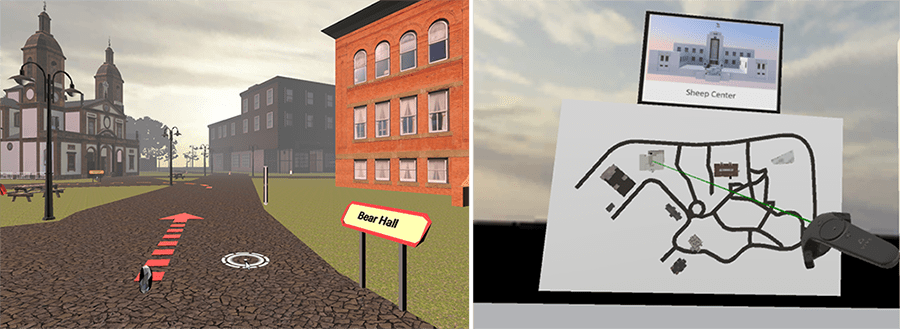Although immersive virtual reality is attractive to users, we know relatively little about whether higher immersion levels increase or decrease spatial learning outcomes. In addition, questions remain about how different approaches to travel within a virtual environment affect spatial learning. In this paper, we investigated the role of immersion (desktop computer versus HTC Vive) and teleportation in spatial learning. Results showed few differences between conditions, favoring, if anything, the desktop environment. There seems to be no advantage of using continuous travel over teleportation, or using the Vive with teleportation compared to a desktop computer. Discussing the results, we look critically at the experimental design, identify potentially confounding variables, and suggest avenues for future research. https://doi.org/10.1080/13875868.2020.1817925
Reference:
Zhao, J., Sensibaugh, T., Bodenheimer, B., McNamara, T. P., Nazareth, A., Newcombe, N., Minear, M., and Klippel, A. (2020). Desktop versus immersive virtual environments: Effects on spatial learning. Spatial Cognition & Computation, 3(3), 1–36.


Recent Comments